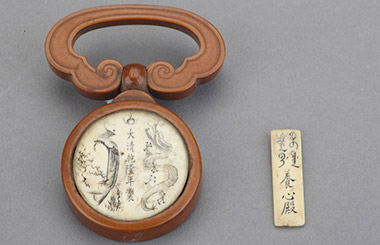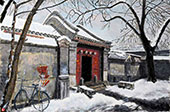Spreading the words
By Yang Yang ( China Daily ) Updated: 2016-08-10 07:32:44
|
Wang Xiaobo's novella collection published by State University of New York Press.[Photo provided to China Daily] |
"But later I found there is no need to study international relations to go abroad.Youjust buy a plane ticket," he says, laughing.
"I wanted to go to China to study Chinese, so I joined in a program between our university and Minzu University of China(in Beijing)."
Since 2001, Abrahamsen has been living in Beijing. He found he wasn't made to be a diplomat. He tried freelance writing, but became frustrated by the uncertainties.
As a result, Abrahamsen, a big fan of literature, finally returned to the area he loves.
After four years of Chinese study, he could read simple articles. Later, when he could read more complicated novels, he fell in love with Chinese writer Wang Xiaobo.
"I found he was deeply influenced by Western literature, judging from his language, sense of humor and thoughts," Abrahamsen says. "Western readers can easily understand him, and feel familiar. He is not only a good writer, but also a very promising writer internationally."
But since Wang has passed away, it is hard to excite foreign publishers about his work, Abrahamsen says.
In 2008, State University of New York Press published a novella collection, Wang in Love and Bondage: Three Novellas by Wang Xiaobo. "But they did no publicity, and the translation is not good enough for me," he says. "So it created little attention in the US."
Besides Wang, Abrahamsen also loves such Chinese writers as Li Juan and translated one of her essays that was published by Pathlight, an English quarterly by People's Literature Publishing House devoted to introducing Chinese literature abroad.
"Her language is very good but very hard to translate. Translation can easily kill the subtlety in her words," he says.
While writers of past generations now seem flat and old fashioned in style, there is more potential for broad acceptance in contemporary authors.
"Mo Yan's narration is creative, but his language is too exaggerated," Abrahamsen says.
Paper Republic has bought copyrights of Liang Hong's nonfiction China in Liangzhuang, A Lai's Empty Mountain and some books by Wang Xiaobo.
In the past 10 years, Spanish-language writers from Latin America have become very popular across the West, thanks to similarities in culture backgrounds. But African and Chinese writers face more difficulties because their cultural backgrounds are so alien to Western readers.
Western publishers also lack information about contemporary Chinese literature, he says.
"Usually they publish a Chinese novel by chance, just like Mai Jia's Decoded. There happened to be a British translator coming across the book at the airport because of a delayed flight, and the translator's grandfather happened to be a decoder.
"How many books have such a coincidence?" he says.
Contact the writer at yangyangs@chinadaily.com.cn
|
|
|
|
|
|
|
|
























 Raymond Zhou:
Raymond Zhou: Pauline D Loh:
Pauline D Loh: Hot Pot
Hot Pot Eco China
Eco China China Dream
China Dream China Face
China Face





